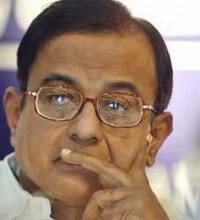 The Economic Survey 2012-13 presented by the Union Finance Minister, Shri P. Chidambaram in the Lok Sabha today emphasizes that the fiscal outcome of Central Government in 2012-13 so far indicates a significant improvement over 2011-12. The fiscal position of the States has continued to progress with fiscal deficit budgeted at 2.1% of gross domestic product (GDP), the Survey added.
The Economic Survey 2012-13 presented by the Union Finance Minister, Shri P. Chidambaram in the Lok Sabha today emphasizes that the fiscal outcome of Central Government in 2012-13 so far indicates a significant improvement over 2011-12. The fiscal position of the States has continued to progress with fiscal deficit budgeted at 2.1% of gross domestic product (GDP), the Survey added.
The fiscal outcome of 2011-12 was affected by macro economic developments of slow down in growth, higher global crude oil prices and sluggish financial market conditions for effecting the budgeted disinvestments programme. The Survey stresses that these developments continued through the first half of the current year. The Government then pressed harder for reforms and an initial step was to set up the Kelkar Committee. Following its recommendations, the Government unveiled a revised fiscal consolidation roadmap.
The Economic Survey has called for staying on the path of indicated fiscal consolidation. This, it says, is critical to sustaining the desirable macro-economic outcomes not only in terms of higher growth in real GDP and lower inflation, but also in easing the financing of the widening current account deficit (CAD), for which India’s sovereign credit rating is important. The Survey also emphasizes widening tax base and privatization of expenditure as key factors in effecting the desired reduction in the Central Government fiscal deficit over the medium term and in reducing the key risks in fiscal marksmanship (different between actual outcomes and budgetary estimates as a proportion of GDP). The Survey underlines that addressing the key fiscal risk of petroleum subsidies is critical in better fiscal marksmanship. “ With recent reforms in diesel prices and efforts at expenditure reprioritization, the medium term fiscal consolidation plan is credible and could yet again yield macro economic dividends in terms of higher growth and price stability,” the Survey notes.
